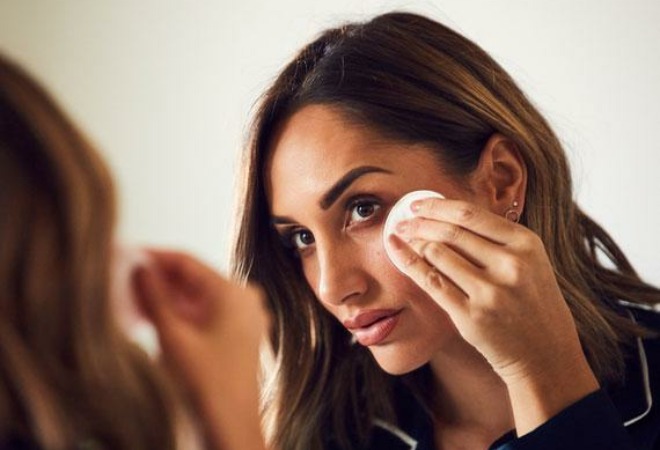Did you know that meditation can have a positive impact on your sleep?
The practice of meditation is known for its calming effect on your mind and body, helping you to unwind after a busy day or simply release any stress. It therefore makes sense that mediation could improve your quality of sleep too.
We spoke to Dr Dan Ford, Sleep Psychologist at The Better Sleep Clinic to gain further understanding into the benefits of mediation on sleep and get some key tips on how to put meditation into practice.

WHAT IS MEDITATION?
Meditation is a set of practices centered around focusing the mind on something to achieve mental clarity and emotional stability. While every major religion has meditation practices, these days, owing to the internet, we most commonly associate meditation with Buddhism and mindfulness meditation. Mindfulness is a specific type of meditation practice, in which a person pays attention to their moment-by-moment experience, on purpose, without judgement or emotion reaction to their experience.
MEDITATION BENEFITS
Various forms of meditation have been studied scientifically and research shows a range of positive physical health benefits from meditation including protecting against stress, lowering blood pressure and heart rate, a reduction in symptoms of hypertension, and lowering inflammation in the body. Likewise meditation has been shown to have a range of positive mental health benefits including decreasing anxiety, decreasing depressive symptoms, and helping with managing symptoms of PTSD. If you’re wondering how simply sitting around looking peaceful can achieve these physical and mental health benefits, neuroscientific studies suggest that meditation’s effects come from changing the brain, with meditators showing improvements in attention, awareness, and control of brain networks that regulate emotions.
SLEEP BENEFITS
With the clear physical and mental health benefits of regular meditation it’s no surprise that there are benefits to sleep from regular meditation practice. In normal sleepers, studies have found that mindfulness meditation improved sleep quality, increased sleep duration and decreased night time awakenings. Likewise, in adults with moderate sleep disturbance meditation has been found to improve sleep quality and decrease fatigue severity more than a sleep hygiene intervention. For those with clinical levels of insomnia, meditation appears to be a useful add-on to enhance the current gold-standard insomnia treatment, cognitive behaviour therapy for insomnia.
TIPS FOR USING MEDITATION TO ENHANCE SLEEP
ESTABLISH A NIGHTLY ‘BUFFER ZONE’
If you want to try meditation to improve your sleep, then the most logical place to add meditation is to a wind-down routine before bed. Many of us have an unreasonable expectation that we should be able to turn sleep on and off like a light switch, going from 100 miles an hour throughout the day to fast asleep in 5 minutes. But the body (and mind) actually needs time to wind down from the day. Having a regular routine of self-care or quiet activities in the 30-45mins leading up to sleep can help to promote calm and sleep onset. So if you don’t have a wind down period, what I call a ‘buffer zone’ between your day and sleep, seek to establish one.
ADD MEDITATION TO YOUR ‘BUFFER ZONE’ & START SMALL
The calming nature of meditation, as well as its myriad health benefits, make meditation an ideal addition to a nightly wind-down routine. There are plenty of different ways to meditate – you can find some further information and insights on meditation and winding down here. Personally, I encourage new meditators to ‘start small’ and simple.
- Set a timer for 2 minutes and with your eyes open or closed, just quietly focus on your breathing wherever you notice it most clearly, nostrils, chest, or belly. Don’t try to control your breathing in any way, just pay attention to it.
- You may find it helpful to repeat a focus word, such as ‘calm’ or simply ‘breathe’ with each exhale.
- If you catch your mind wandering, just bring it back to your breath and continue (Remember: you want to catch your mind wandering, this is the skill you are practicing, it’s the meditation equivalent of a weightlifting ‘rep’).
- When the timer goes off just get on with the rest of your wind down routine.
- When you feel comfortable with 2 minutes, look to extend your meditation time by another minute. Continue to build your time up in small increments. Typically, no more than 20 minutes of meditation is recommended for novices.
MEDITATE FOR MEDITATIONS SAKE
Meditation has many health benefits. But so does a fitness program, eating well, or volunteering in your community. This is just my opinion, but if you want the health benefits of meditation it’s best you obtain them while meditating for meditations sake – tranquility of mind (referred to as ‘samatha’ in Buddhism) & insight (‘vipassana’) – rather than meditating simply for its health benefits or to try to make your sleep better.
DON’T EXPECT MEDITATION TO CURE INSOMNIA OR A SLEEP DISORDER
While meditation can improve sleep, if you have insomnia or a similar sleep disorder, believing that you can meditate yourself to sleep will most likely leave you disappointed and frustrated. Most people we’ve treated for insomnia have unsuccessfully tried to meditate themselves to sleep & report that it hasn’t ‘worked’ for them. This is not surprising. Meditation is not a therapy for insomnia by itself and isn’t supposed to ‘work’ like a sleeping pill. In fact, in treatment we use meditation for the exact opposite of trying to sleep. Meditation is best used to shift our perspective and become more accepting and less emotionally reactive.
Follow the easy steps above to give meditation a try and enjoy the benefits it will bring to your sleep experience.
Ensure you get the sleep you need night after night, with the right bed for your sleep needs. Simply try our Bed Selector to find the recommended product for you.




